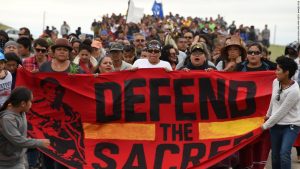History and journalism seem to go hand-in-hand since journalists write and archive history, but what most people don’t realize is that journalists have a huge effect on how history plays out.
While many things are going on in the world, journalists are the ones who inform people about what those things are. Journalists can “set the agenda” and stand “up to countless villains” while putting “themselves in harm’s way” according to Mightier than the Sword written by Rodger Streitmatter. When they do this, they are able to portray themselves, the subject, and the audience as a certain character that may or may not be playing a positive role.
From those different roles, they can energize and move people, hurt and anger people, or inhibit people from doing things. These different characteristics can be seen as protests, propaganda, or celebrations that have been played throughout history. Journalism has a lot of power since they can cause people to do these things just by informing them in a certain way.
From the Pew Research Center, a study done from 1985 to 2017 exhibited up to 89% of U.S adults believe that “criticism from news organizations keep political leaders from doing things that shouldn’t be done.” In this sense, journalism has a strong presence with people and that they work as a check and balance with the government. With this type of influence, history that may be occurring at the moment can change in an instant if journalists portray events in a specific way.



